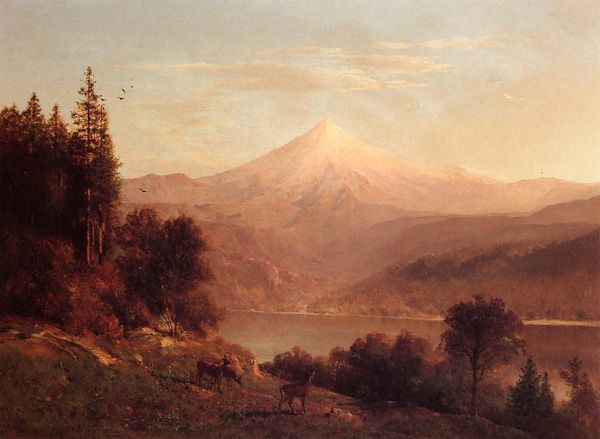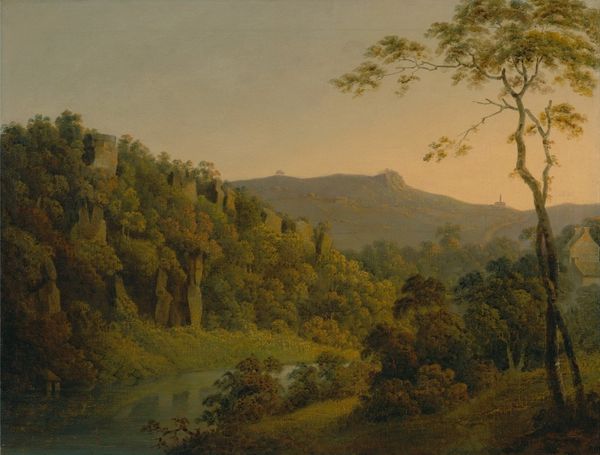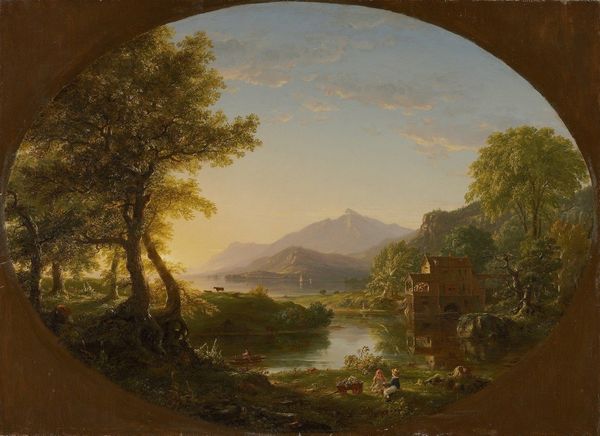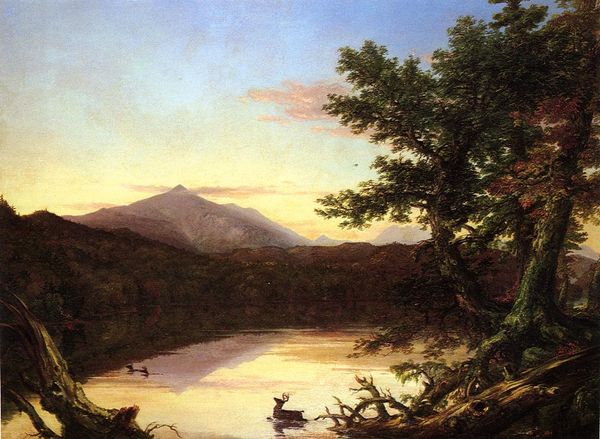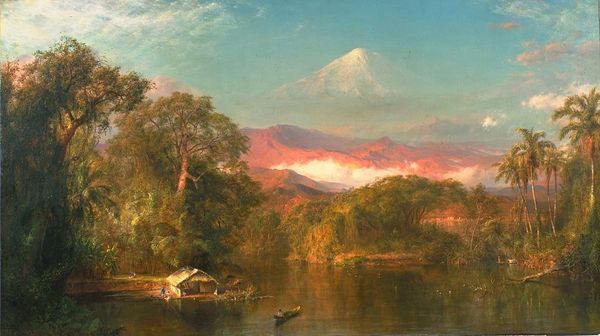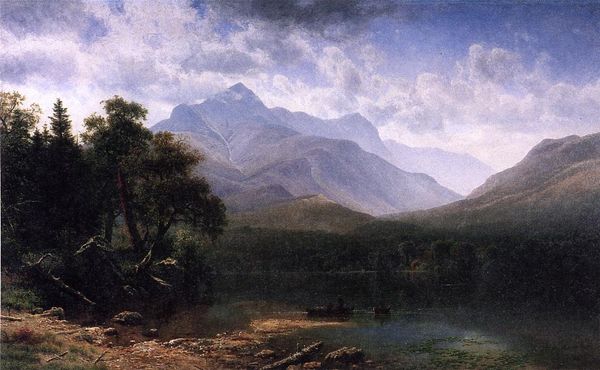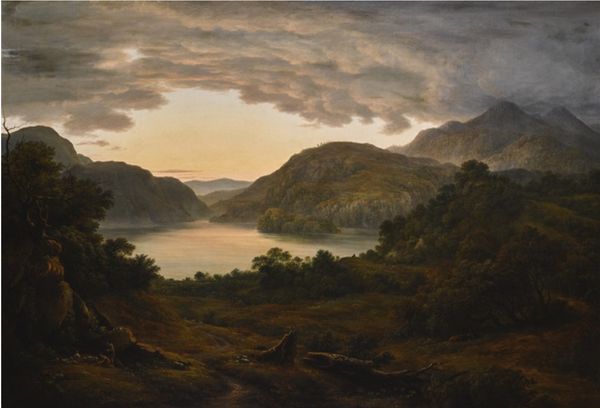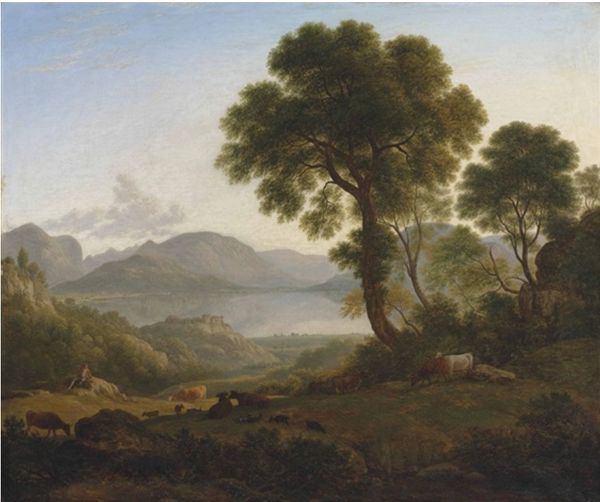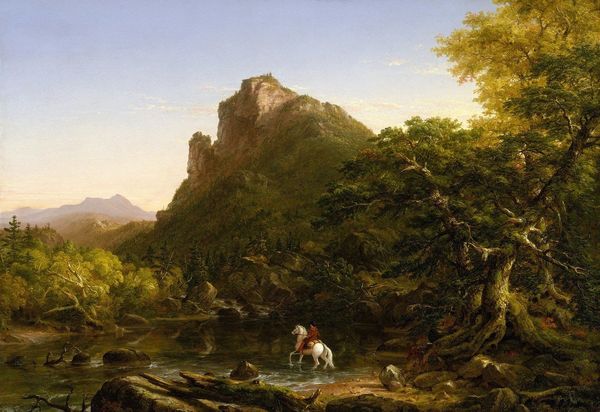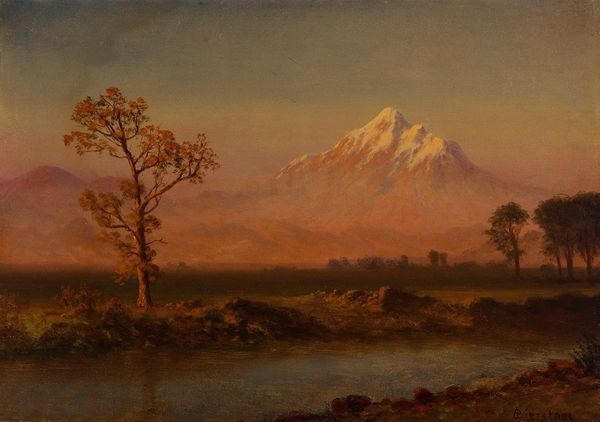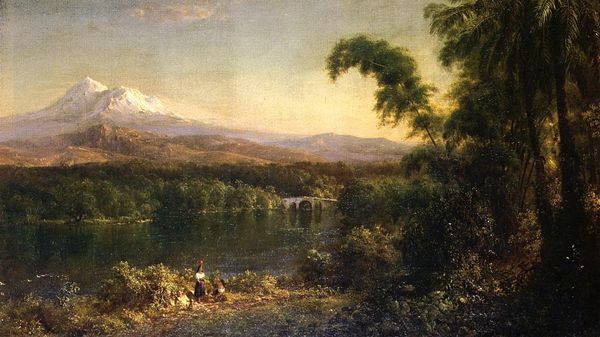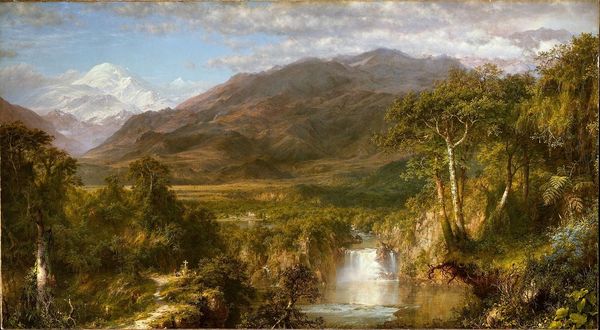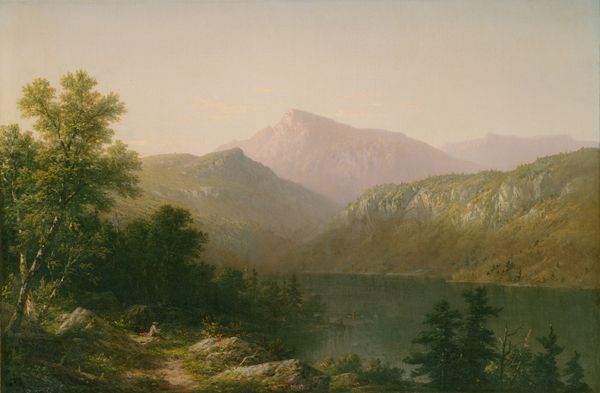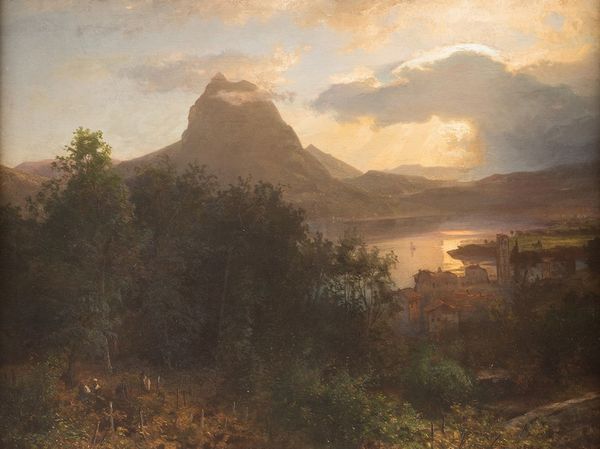
painting, plein-air, oil-paint
#
painting
#
plein-air
#
oil-paint
#
landscape
#
nature
#
romanticism
#
hudson-river-school
#
surrealist
#
watercolor
#
realism
Copyright: Public domain
Editor: Frederic Church's "Tropical Scenery," is a stunning oil on canvas painting, possibly done en plein-air. I am really drawn to its tranquility and how the warm sunlight illuminates the majestic mountain in the distance. How would you interpret this piece through a historical lens? Curator: What strikes me immediately is how this work exemplifies the Hudson River School's approach to landscape. They weren't simply depicting a place, but crafting a vision of American expansion and identity. Consider the mid-19th century, a period of intense territorial expansion. These idealized landscapes fueled the concept of manifest destiny. Where do you think this fits into that national narrative? Editor: So, it’s less about the actual location, and more about the idea of landscape representing national ambition and progress? The sublime mixed with ideology. Curator: Precisely. These artists sought to convey not just scenic beauty, but also the spiritual and moral character of the American landscape. How does the absence of any readily identifiable American figures change or solidify this? Editor: That’s interesting, their absence almost makes it more about the *promise* of the land, open for anyone... and devoid of indigenous claims. I see now that Church’s landscape romanticizes the era’s political motivations and justification. Curator: Exactly. The "Tropical Scenery," like many works of its time, becomes less an innocent vista and more of a cultural artifact reflecting—and promoting—a very particular worldview. And now, how might you describe the public role of art after understanding this artwork more deeply? Editor: This conversation opened my eyes to how art isn't always a reflection, but it could function as a promotion of ideas in a culture and historic era. Curator: It is essential to view art as an object reflecting social values. Now, whenever I examine any artwork, I would investigate beyond its aesthetics. Thank you for being curious about these socio-political motivations behind Church's piece and its period!
Comments
No comments
Be the first to comment and join the conversation on the ultimate creative platform.
